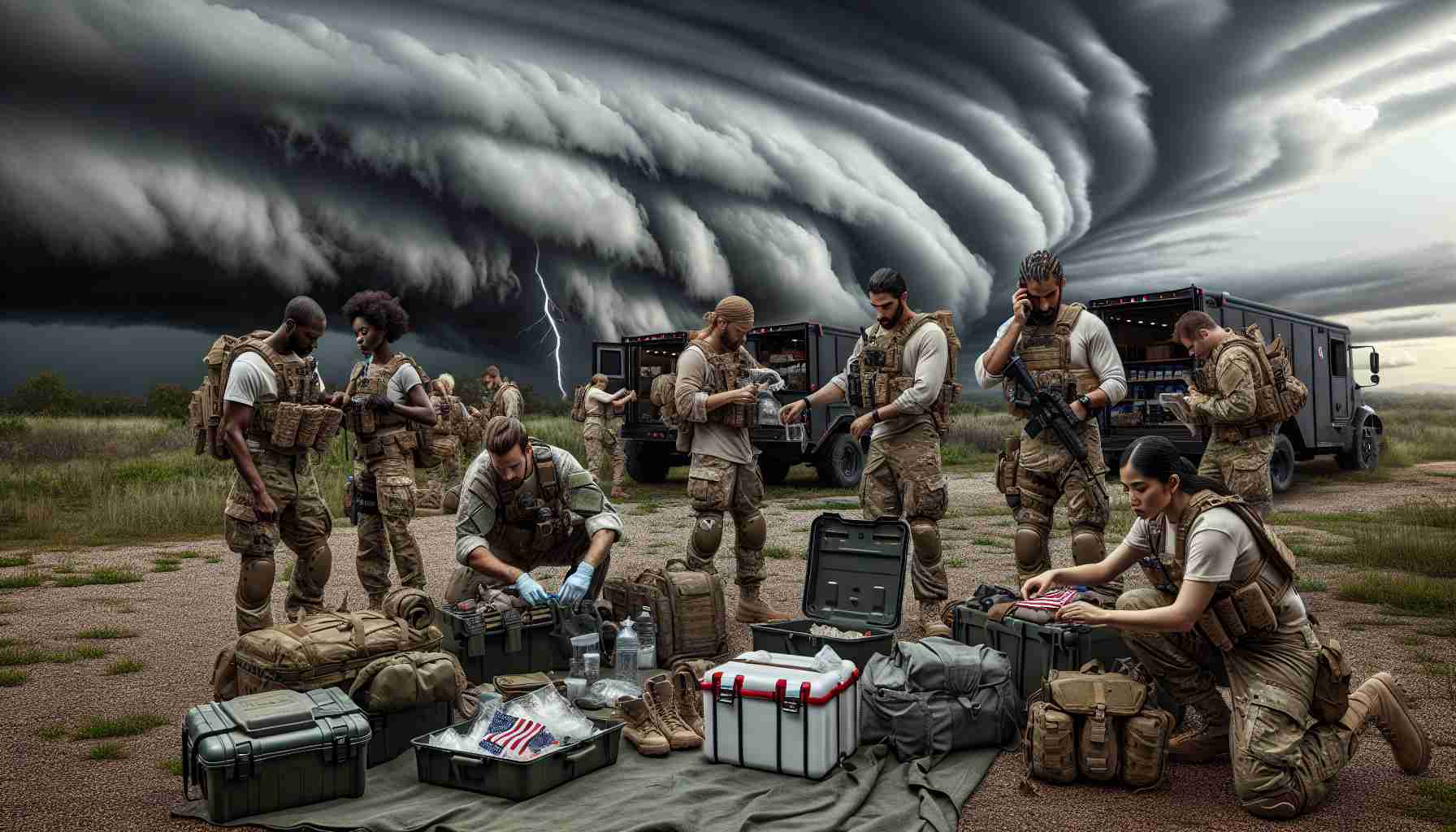As Hurricane Milton approaches, the U.S. military is taking strategic measures to safeguard its valuable aircraft. MacDill Air Force Base in Tampa, Florida, has suspended operations for nonessential personnel as it braces for the storm’s impact, having previously experienced a near-miss with Hurricane Helene. The base, crucial for U.S. Central Command and Special Operations Command, is in Milton’s predicted path.
In a swift response, the 6th Refueling Wing at MacDill relocated a dozen KC-135 Stratotankers to McConnell Air Force Base in Kansas, making this their second evacuation in recent weeks. Meanwhile, the 482nd Fighter Wing from Homestead Air Reserve Base is transferring seven F-16 fighters to San Antonio, Texas.
As hurricane preparations extend beyond the Air Force, the U.S. Navy and Space Force are also on high alert. Naval Station Mayport, positioned near Jacksonville, is planning to evacuate its aircraft or secure them in hangars to mitigate damage. In addition, Patrick Space Force Base, located near Cape Canaveral, will restrict access to essential personnel only during the storm timeline, from Wednesday through Friday.
Moreover, the hurricane’s effects have led to airport closures statewide, raising alarms about a potentially strong storm surge. To monitor Milton’s trajectory, the National Oceanic and Atmospheric Administration is deploying specialized aircraft to gain crucial insights from inside the storm’s eye.
Preparation for Hurricanes: Tips, Life Hacks, and Interesting Facts
As we witness natural disasters like Hurricane Milton, it’s essential to be prepared and informed. Here are some vital tips and life hacks to help you stay safe during hurricane season, as well as some interesting facts to enhance your understanding of these powerful storms.
1. Create an Emergency Plan
Before a hurricane strikes, having an emergency plan is crucial. Ensure that all family members are aware of the plan, which should include meeting points, communication methods, and evacuation routes.
2. Stock Up on Supplies
Prepare a hurricane kit with the essentials: non-perishable food, drinking water, first aid supplies, flashlights, batteries, and necessary medications. Aim for at least a three-day supply for each family member.
3. Secure Your Home
Strengthen your home against high winds by installing storm shutters or boarding up windows with plywood. Trim trees and shrubs to prevent them from becoming projectiles.
4. Stay Informed
Follow local news stations and updates from the National Oceanic and Atmospheric Administration (NOAA) for real-time information on hurricane paths and safety measures. Consider downloading weather apps for immediate notifications.
5. Know Your Neighbors
It’s beneficial to know your neighbors, as they can be a critical support system during emergencies. Share resources and skills, such as carpentry or medical training, and form a community safety plan.
6. Utilize Technology
There are numerous apps designed to assist with emergency preparedness. They can remind you to gather supplies, connect you with emergency services, or inform you of changing weather patterns.
Interesting Facts About Hurricanes
– The Atlantic hurricane season runs from June 1 to November 30, with hurricanes capable of reaching wind speeds exceeding 157 mph.
– The largest hurricane on record, Hurricane Wilma in 2005, had a wind speed of 215 mph.
– The Saffir-Simpson Hurricane Wind Scale categorizes hurricanes into five categories based on their wind speed and potential damage, with Category 5 representing the most catastrophic storms.
Conclusion
Hurricanes are formidable forces of nature, but with proper preparation and knowledge, you can keep yourself and your loved ones safe. Stay vigilant, stay informed, and remember that resilience is key during such challenging times. For more resources on emergency preparedness, visit Ready.gov.
Stay prepared, and you will navigate the challenges posed by hurricanes more effectively!







